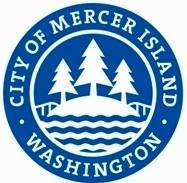There were just three resident commenters on screen this time as opposed to the 69 who appeared at the last Mercer Island City Council meeting.
On March 2, the trio was equally as passionate about its topic of choice, the city’s Sustainability Work Plan, which followed up last meeting’s passage of an ordinance to ban camping on public property.
This time out, council voted 7-0 to approve the plan, which City Manager Jessi Bon said is in its evolving stages. Earlier in the meeting, the commenters thanked council for including the plan presentation on its agenda.
The city’s sustainability and communications manager Ross Freeman led a presentation that focused on the plan’s background, major sustainability program functions and examples of sustainability in action.
“…Efforts to curtail consumption of scarce resources including electric energy, water, fossil fuels and landfill space, and set new targets for conservation of such natural resources,” was language added to the comprehensive plan in 2006.
Moving forward to 2021, the position of a full-time sustainability manager — Freeman — has been cemented into the 2021-22 biennial budget.
“One of the benefits of moving this position into the operations division, Public Works, is that we can really integrate the actions of this position across many different city activities,” said Freeman, noting that program functions will be efficiency, waste and toxics, energy, greenhouse gas emissions, transporation, CIP and operations and outreach and education.
Freeman, who will assume his full-time post in the spring, said that in the near future the city will focus more time on its stormwater situation.
“We would propose to spend a lot more energy integrating the city’s projects and activities such that we’re always looking at stormwater through the same sustainability lens,” he said.
Near the beginning of his eight years of city employment, Freeman said it was his mission to pass the Island’s single-use plastic bag ban, which council accomplished. A statewide ban is forthcoming later this year, added Freeman, who noted that a ban on disposable foam in the form of restaurant takeout containers could be next on the city’s menu. He noted that many Island food venues already use fully compostable containers.
On the energy efficiency front, the city has switched to LED models on nearly all of its streetlamps and has begun this process at some of its ballfields to cut costs on energy, labor and maintenance. In the clean-power realm, Freeman has run two residential solar installation programs over the last several years by adding 100 new arrays onto rooftops.
A recent sustainability milestone in 2020 was switching 100% of the city’s energy needs to renewable windpower from a new Puget Sound Energy wind farm. The city has built off another key milestone from eight years ago when it received United States Environmental Protection Agency recognition as “Green Power Partner of the Year” for its clean energy programs.
For more information, including parks information, visit https://www.mercerisland.gov/publicworks/page/sustainability and https://letstalk.mercergov.org/miprosplan.


